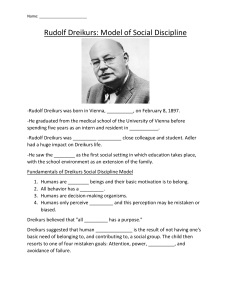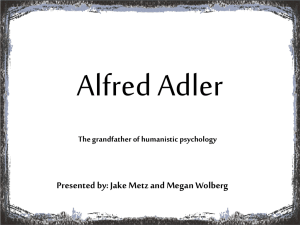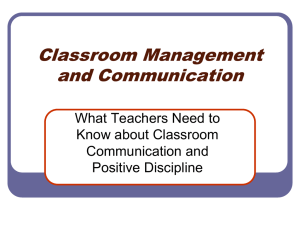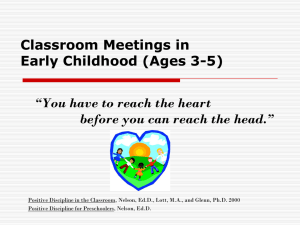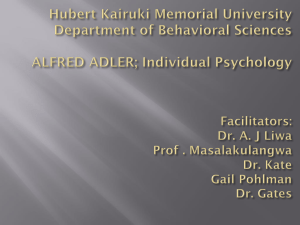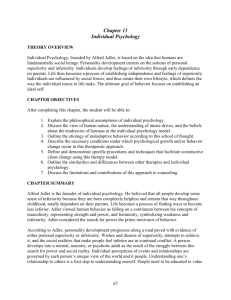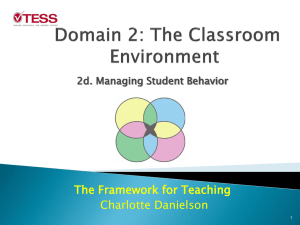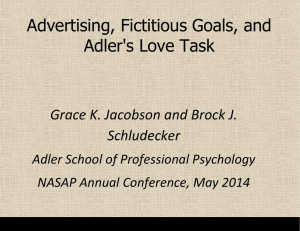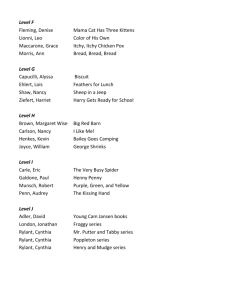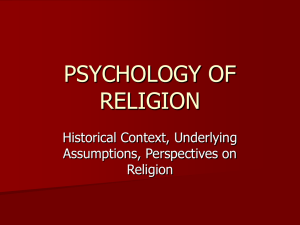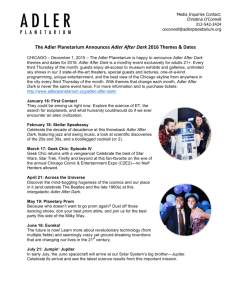Rudolf Dreikurs: Logical Consequences in Education
advertisement
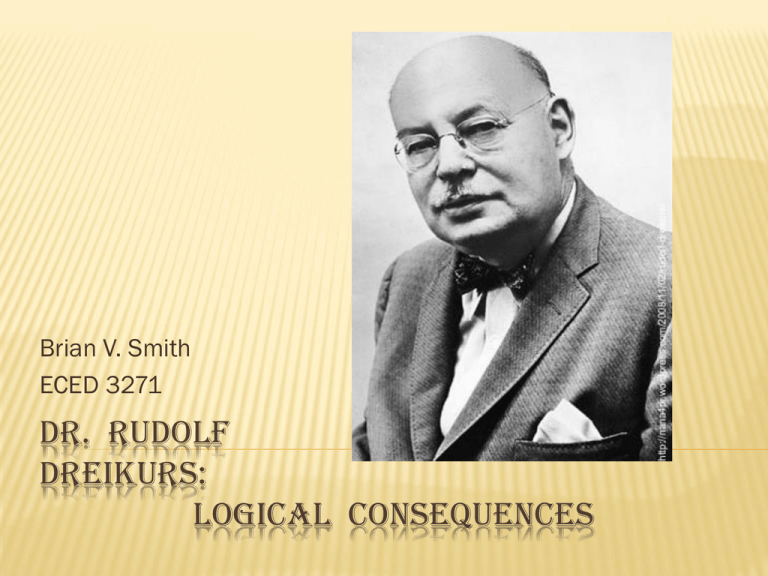
Brian V. Smith ECED 3271 DR. RUDOLF DREIKURS: LOGICAL CONSEQUENCES THE GOOD DOCTOR? Rudolf Dreikurs was born in Chicago on February 8th 1897; Dr. Dreikurs was a psychiatrist and a teacher during the educational reforms. He was a close colleague and student to psychologist Alfred Adler, who founded and began implementing the school of “individual psychology”. He is most well known for his simplification and application of Adler's ideas for use by parents and educators. After Adler’s untimely demise, Dr. Dreikurs further developed Adler’s system into a method of understanding misbehavior in children, and for stimulating cooperative behavior without punishment or reward. (Say What?!) A “NOT SO HARRY WONG” THEORY Alfred Adler’s “individual psychology” refers to the psychological science of the human personality. Breaking away from the psychoanalytic school of Freud. (Environmental, not sexual). Holistic approach to studying characterSocietal, Love, and Vocational. Commonly known as “Differential Psychology” THEORY OVERVIEW Dreikurs suggested that human misbehavior is the result of not having one's basic need of belonging to, and contributing to, a social group. Students would learn to cooperate reasonably without being penalized or rewarded because they would feel that they are valuable contributors to the classroom. “Anticipation influences outcome—the fear of making a mistake leads to mistakes. Anyone who can alter the expectations of people can change their behavior.” Encouragement is key to success. -Dr. Rudolf Dreikus STUDENT’S RESPONSIBILITIES Pre-adolescent students should be responsive, well-behaved, and work adequately. Defined Social Setting. Meet Life’s challenges in a constructive, positive way. Behavior not pre-determined. Lack of significance Encouraged and positively supported “All behavior has a purpose” The Four Goals of Misbehavior STUDENT’S ACTIONS Students have lack of social belonging, and present problems. Students resort to one of the Four Misbehavior Goals: Attention, Power, Revenge, and Avoidance 1.) Misbehavior desires attention – if no attention is received then they desire power. 2.) If power push is thwarted, then they seek revenge. 3.) No Revenge, means no power or attention. The student will withdraw from activities. TEACHER’S RESPONSIBILITIES Teachers must: ► Identify the mistaken goal. ► Confront the mistaken goal by providing an explanation of it. ► Avoid power struggles with students ► Encouragement and support for even minimal efforts Attention, Power, Revenge, Avoidance Examine and Change Democratic Teaching Encourage Inadequacy TEACHER’S ACTIONS The teacher is instructed to set up situations where the students can exhibit talents and strengths and ultimately experience acceptance. Dr. Dreikus: Two Types of ConsequencesLogical and Natural Logical Consequence: reasonable results that follow behaviors Natural Cons.: Naturally occurring results PROS AND CONS CONS PROS No Punishment? -Class Corrected behavior of Natural Consequences Teachers avoid arguments Students will feel productive No Punishment? (Class) No rewards means no incentives for positive behavior What about students with EBD? Classroom Instability More Teacher Needs/Stress Social Significance not met Training Problems Punishment is not considered effective discipline. It is seen as an act of revenge to show the students who is in charge. It is humiliating and offensive toward students. VOCABULARY Individual Psychology- or differential psych., Alfred Adler’s approach regarding people as individuals who are in need of harmony through relationships with others. Psychoanalytic- or psychoanalysis, analyzation of the subconscious mind after hearing or observing information of personality functioning. Democratic Teaching- Teachers having students participate in decision-making and direction of the class in order to redirect students’ ambitions for power.
